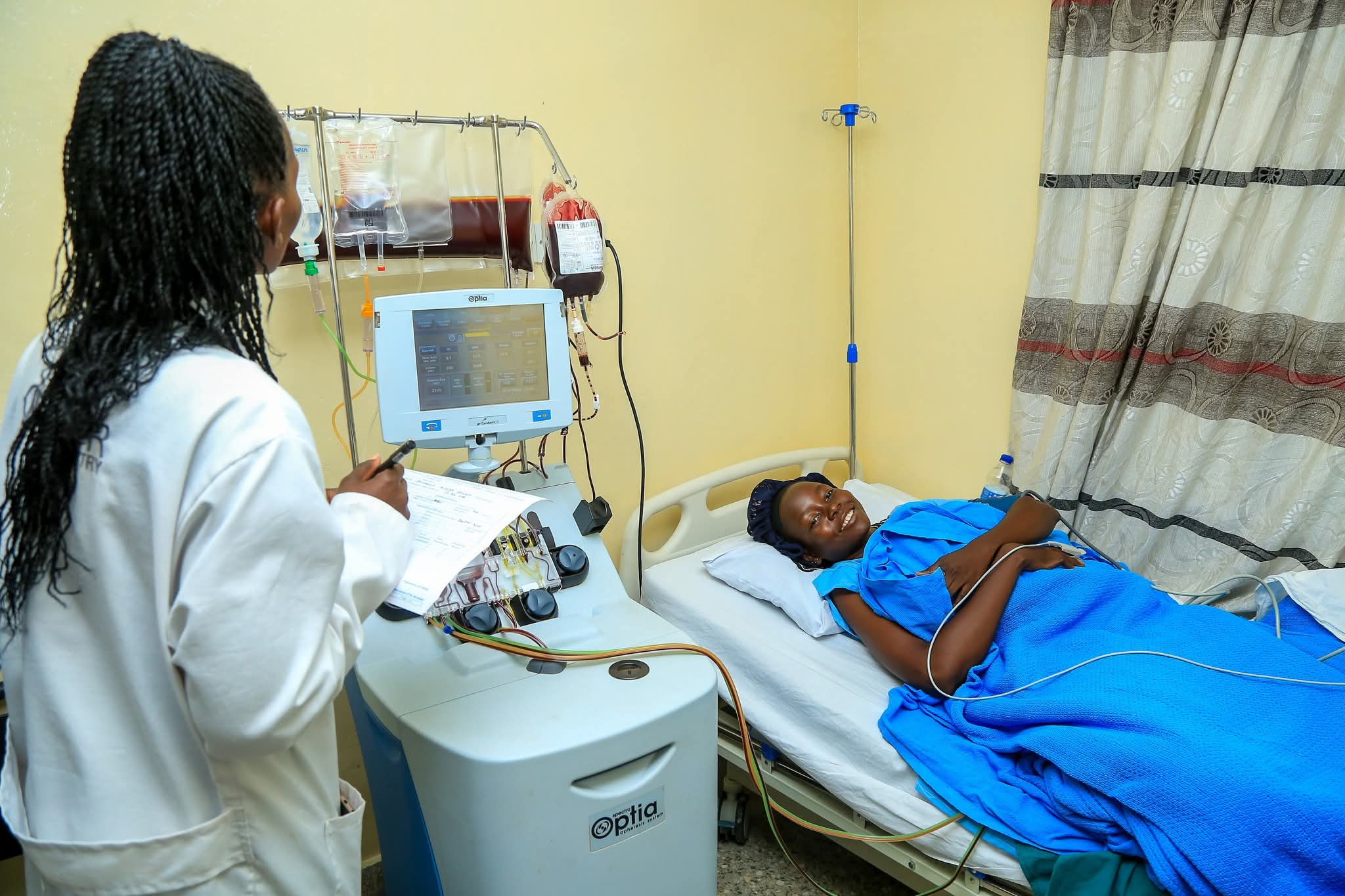
EXPLAINER: What you need to know about Sickle Cell
Sickle Cell Disease is not contagious, but it is inherited
The technology is expected to reduce painful crises, improve the quality of life and increase life expectancy for patients.
In Summary

Audio By Vocalize
 The inaugural patient, Mitchel Omullo, a 32-year-old filmmaker, chef, and disability inclusion facilitator at Victoria Hospital, an annexe of JOOTRH./HANDOUT
The inaugural patient, Mitchel Omullo, a 32-year-old filmmaker, chef, and disability inclusion facilitator at Victoria Hospital, an annexe of JOOTRH./HANDOUTThe first-ever automated red blood cell exchange transfusion
in a public hospital in Kenya was successfully conducted at Victoria Hospital,
an annexe of Jaramogi Oginga Odinga Teaching and Referral Hospital (JOOTRH).
The procedure, powered by a newly acquired apheresis
machine, marks a breakthrough in the management of sickle cell disease
(SCD) in Kisumu, a region where the condition remains highly prevalent.
The technology is expected to reduce painful crises, improve the quality of life and increase life expectancy for patients.
For some, doctors say, the intervention can mean up to five
years without a single crisis.
The inaugural patient was Mitchel Omullo, a 32-year-old
filmmaker, chef, and disability inclusion facilitator who has battled SCD since
the age of three.
Speaking after the procedure, Omullo expressed gratitude and
urged fellow warriors to embrace the new treatment.
“This is a game-changer
for us. I feel renewed strength, and I know many families have long prayed for
such relief,” she said.
Acting JOOTRH CEO Joshua Clinton described the milestone as
a major step forward in regional healthcare.
He explained that apheresis, the process behind the automated
transfusion, allows patients with sickle cell disease to receive healthy red
blood cells through an advanced exchange system.
“We have collaborated with Nairobi West Hospital to ensure
this is done, and the medical equipment currently in use was provided by them,”
Clinton said.
He noted that over 90 per cent of children born with sickle
cell disease die before their fifth birthday if no intervention is made.
“This procedure will significantly improve the longevity of
the lives of children and adults affected by this disease. It is one of the
most progressive healthcare developments in this region,” he added.
Clinton said JOOTRH has budgeted about Sh100 million for a
sickle cell and haematology centre, with support expected from the national
government and partners.
He also issued a public appeal for blood donations, saying, “Our blood donation unit operates 24 hours. This procedure requires a lot of
blood, and we need the community’s support to save lives.”
He said beyond sickle cell care, Nairobi West Hospital has
agreed to partner with JOOTRH in cancer management, particularly in addressing
delays in radiotherapy.
“Patients from JOOTRH
will now be referred to Nairobi West for radiotherapy and placed on treatment
within three to four days, fully covered by the Social Health Authority with no
extra costs,” he said.
Collaboration for better care
Nairobi West Hospital clinical haematologist Dr Boniface
Githaiga described the launch as historic.
“It may not be new in Kenya’s major hospitals, but this is
the first time we are bringing it to a public facility in this part of the
country. We hope to roll out the programme regularly, two to three times a month, so that more people can benefit,” he said.
Nairobi West Hospital Medical Superintendent Dr Prakash
Saini said the hospital has already conducted 23 bone marrow transplants and
nearly 50 red blood cell exchanges for SCD, with very positive outcomes.
He said the initiative is part of their corporate social responsibility.
“This is about giving back to society. We are committed to
expanding access to this service across the country in partnership with the
Ministry of Health and county governments,” he said.
For warriors like Omullo, the promise of fewer crises and longer, healthier years is no longer a distant hope but a real possibility.

Sickle Cell Disease is not contagious, but it is inherited

World Sickle Cell Day is observed annually on June 19